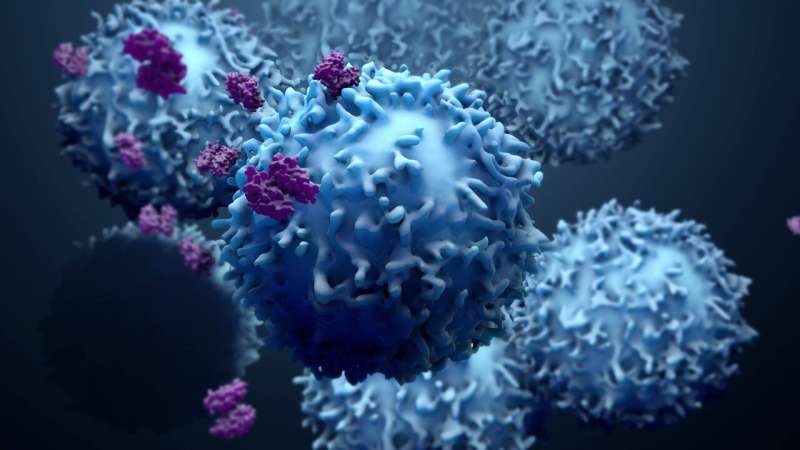Immune cells may improve accuracy of predicting survival in colorectal cancer

The density of immune cells, called tumor infiltrating lymphocytes, when combined with analysis of tumor budding may serve as a method to more accurately predict survival in patients with stage III colon cancer. The findings, by a team of researchers led by Mayo Clinic gastroenterologist and oncologist, Frank Sinicrope, M.D., were published today in Annals of Oncology.
Using colon cancer tissues from a completed clinical trial, Dr. Sinicrope and his colleagues were able to demonstrate that the extent or density of tumor infiltrating lymphocytes (TILs), reflecting the patient's anti-tumor immune response, is a robust predictor of survival in patients with stage III colon cancer. TILs are a type of immune cell that has moved from the blood into a tumor that can recognize and kill cancer cells.
"Our ability to predict patient outcome using TILs is strengthened when we combine it with tumor budding," says Dr. Sinicrope. Tumor budding is the presence of single cells or small clusters of tumor cells at the invasive margin, or front edge of a cancer, which can be scored by pathologists and may predict the potential for the cancer to spread or metastasize.
"Determining the density of tumor infiltrating lymphocytes and analysis of tumor budding can be performed on resected tumor specimens," says Dr. Sinicrope. "We found that the combination of these tumor features were second only to number of tumor-containing lymph nodes for predicting patient survival. Furthermore, these features provided important data on patient survival in patients categorized into low-risk and high-riskT and N stage groups which guide the recommendation to receive 3 or 6 months of chemotherapy after surgery."
Dr. Sinicrope and his colleagues are working to automate the scoring of TILs and tumor budding in tumors from patients with stage III colon cancer. "We hope to provide important prognostic information on individual patient tumors using routine tissue sections without the need for the special stains typically used to identify specific immune cell types," he says.
More information: H. Lee et al. Analysis of tumor microenvironmental features to refine prognosis by T, N risk group in patients with stage III colon cancer. Annals of Oncology Available online 25 January 2020. DOI: 10.1016/j.annonc.2020.01.011





















